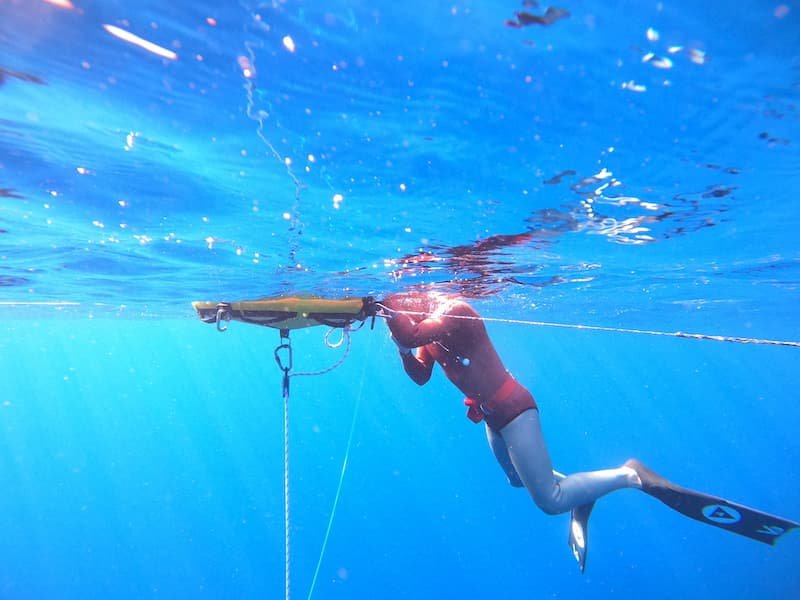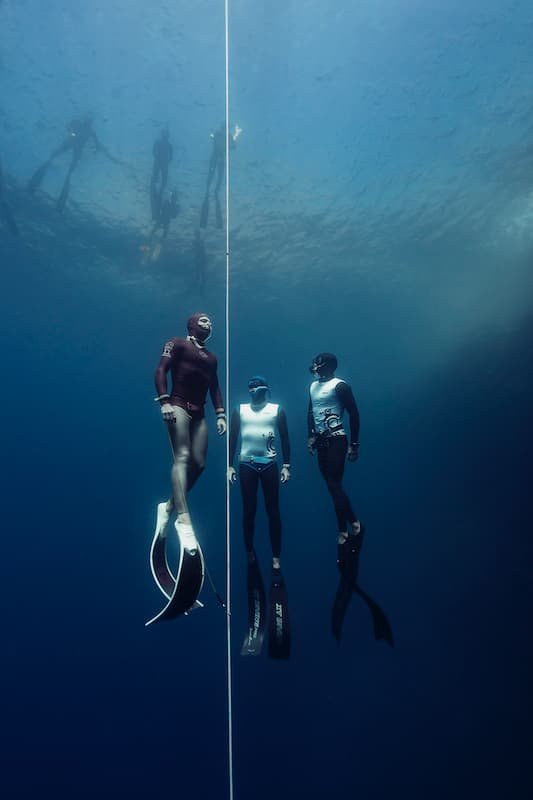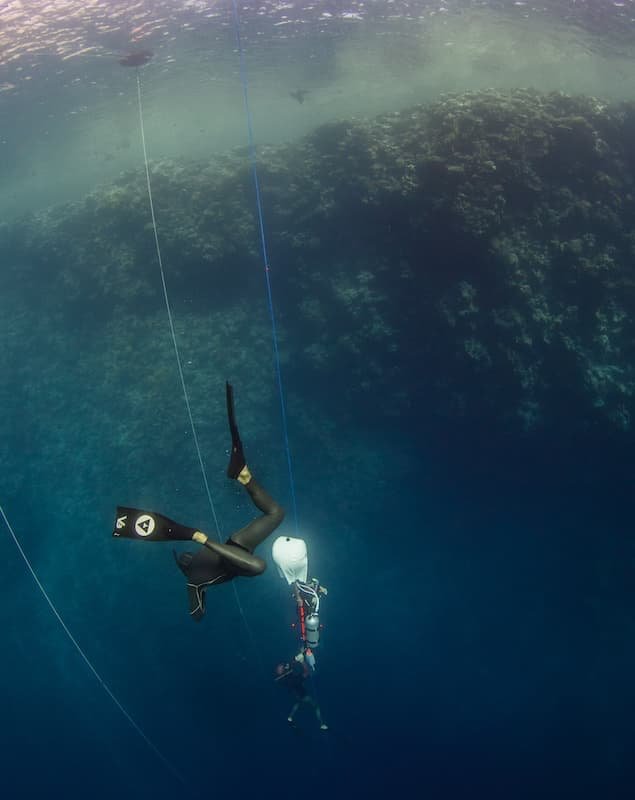In June 2023, during a visit to Brazil for an AIDA instructor course, I had the privilege of meeting Rafael Delascio, a renowned Peak Performance Breathing Coach specializing in Breathing Training and Sports Training Physiology. Hailing from Sao Paulo, Brazil, Rafael Delascio has gained recognition for his expertise in optimizing sports performance through breathing techniques.
Rafael Delascio possesses national and international certifications in high-performance sports and inspirational muscle training. He is also an AIDA freediving instructor with over 14 years of experience. His journey has led him to realize the pivotal role that mastering breathing techniques plays in enhancing sports performance. In 2017, he founded VOCEPERFOMAR, an organization dedicated to imparting courses and services aimed at performance improvement through breathing. Delascio emphasizes the importance of strengthening respiratory muscles to bolster the cardiovascular, respiratory, and musculoskeletal systems' functionality.
In 2019, Delascio's exploration of freediving revealed the potential of apnea in enhancing the cardiopulmonary conditioning of athletes across different disciplines. Recognizing the synergy between inspiratory muscle training and diving, he noted that strengthening the inspiratory muscles complements divers' existing breathing practices. Notably, Delascio's techniques have been embraced by various Brazilian athletes, including renowned figures such as Bia Mesquita, Patrick Gaudio, Jansey Jones, Caua Angeloti, Maria Carolina Joia, Jessica Bianco, and Pedro Franca.

During our conversation, Rafael Delascio shed light on the significance of breathing techniques for athletes pursuing high-performance goals. He stressed that while spectators may perceive peak performance as effortless, athletes and coaches understand that reaching the limits of one's potential demands dedication, meticulous attention, and mastery over breathing. He cited experts like Patrick McKeown and Wim Hof, who also acknowledge breathing's pivotal role in health, performance, and well-being.
Rafael Delascio's studies on professional athletes have unveiled the profound influence of breathing on sports performance. Breathing, as described by Dr. Danny Penman, is a meditative and omnipresent element that reflects one's emotions and facilitates both relaxation and focus. Delascio highlighted that the average person breathes over 15,000 times daily, yet often remains unaware of most of these breaths due to the unconscious nature of diaphragmatic function.

Delascio delved into the concept of conscious breathing, which involves deliberately controlling and directing one's breath. He underscored the diverse ways in which breathing techniques can be tailored—altering phases, introducing retention periods, utilizing nostrils, and more—to yield varying benefits for both the body and mind. He emphasized that breathing practice equips individuals with a transformative skill, enabling them to excel in high-performance endeavors and enhance various aspects of their lives.
Delascio expounded on the manifold benefits of practicing breathing techniques:
Delascio elucidated the importance of inspiratory muscle training (IMT) in athletes' physical conditioning. IMT involves targeted strengthening of inspiratory muscles to enhance lung capacity, respiratory performance, and overall athletic prowess. He emphasized the role of well-conditioned respiratory muscles in sustaining optimal functionality across the respiratory, cardiovascular, and musculoskeletal systems.

Considering the unique challenges faced by freedivers, Delascio discussed how inspiratory muscle training could significantly contribute to their preparation. He highlighted the physiological, mechanical, technical, hydrodynamic, and other factors that can be positively impacted by conditioned respiratory muscles. The diver's overall conditioning, influenced by respiratory muscle strength, can markedly affect performance during dives.
Rafael Delascio's commitment to research in the field of breathing techniques is ongoing. He shared his plans to unveil further data and results related to his research on the impact of breathing strategies on freediving performance. In the subsequent conversation (Part 2), Delascio will delve into the progress of his research with freediving athletes, offering insights into their evaluations, breathing tests, and outcomes across various modalities.